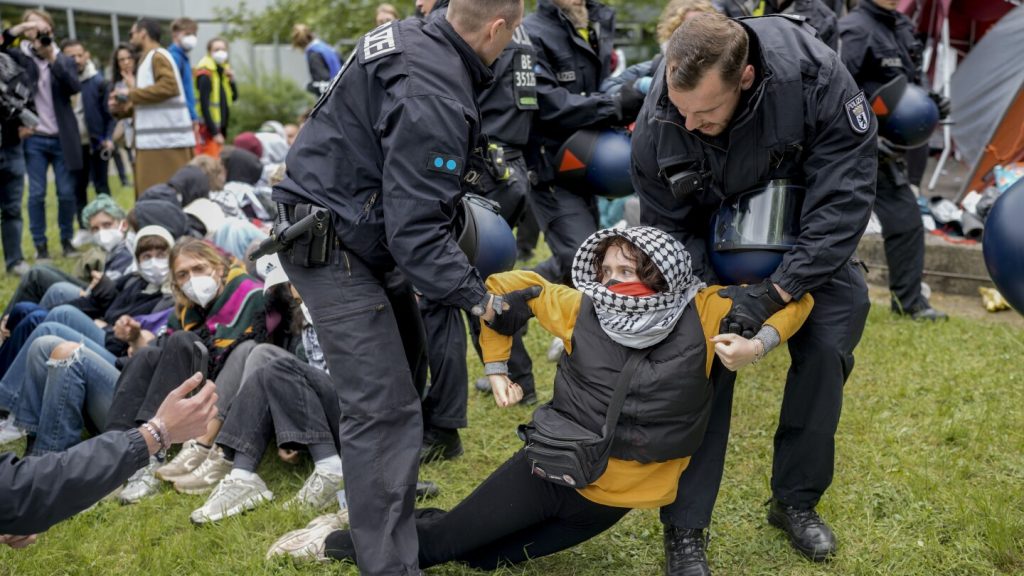The recent conflict between Israel and Hamas has sparked protests on university campuses across the United States and Europe, challenging the traditional concept of universities as spaces for debate and freedom of expression. The violent attack by Hamas militants, followed by Israel’s military campaign in Gaza, has resulted in a significant number of casualties and heightened tensions on campuses. Pro-Palestinian protesters are demanding that their schools divest from Israel, leading to clashes with pro-Israel groups who view the demonstrations as antisemitic and unsafe. Administrators have called in local police to break up the protests, raising questions about the role of law enforcement on university campuses.
The use of police force to manage the protests has raised concerns about the erosion of trust between universities and their students, as well as the impact on the institutions’ credibility and autonomy. The crackdown on demonstrations is reminiscent of past student-led protests during the American civil rights movement and the Vietnam War, in which law enforcement was called in to maintain order. The scale and intensity of the current protests, fueled by the Israel-Hamas conflict, have tested university leaders on how to respond effectively while ensuring the safety and rights of all involved.
The wave of pro-Palestinian protests on U.S. campuses was sparked by demonstrations at Columbia University, where the president was called for questioning before Congress for not doing enough to combat antisemitism. Similar scenes played out at other universities across the country, with police arresting protesters and university officials intervening to dismantle encampments. The demonstrations have also spread to European universities, where administrators are faced with the dilemma of allowing or intervening in the protests. The handling of these protests by administrators will likely face scrutiny and evaluation in the aftermath of the conflict.
The protests at universities have sparked a debate about the role of universities in addressing political conflicts and supporting freedom of expression. Participants in the protests emphasize the importance of protecting the freedom to protest, express opinions, and engage in dialogue about critical issues such as the Israel-Hamas conflict. The protests have also highlighted the global impact of the conflict, with demonstrations spreading to universities in the U.K. and Europe, where students are advocating for Palestinian rights and calling for peace and justice in the region.
As the protests continue and the conflict shows no signs of resolution, there is a growing focus on how administrators handle the demonstrations and engage with students on contentious issues. The strategies employed by schools like Rutgers and Brown, where negotiations led to the resolution of protests, will be closely examined to determine best practices for addressing similar situations in the future. The ongoing protests signal a shift in the role of universities as sites of political engagement and activism, challenging traditional norms and expectations of higher education institutions in times of political conflict and social unrest.


